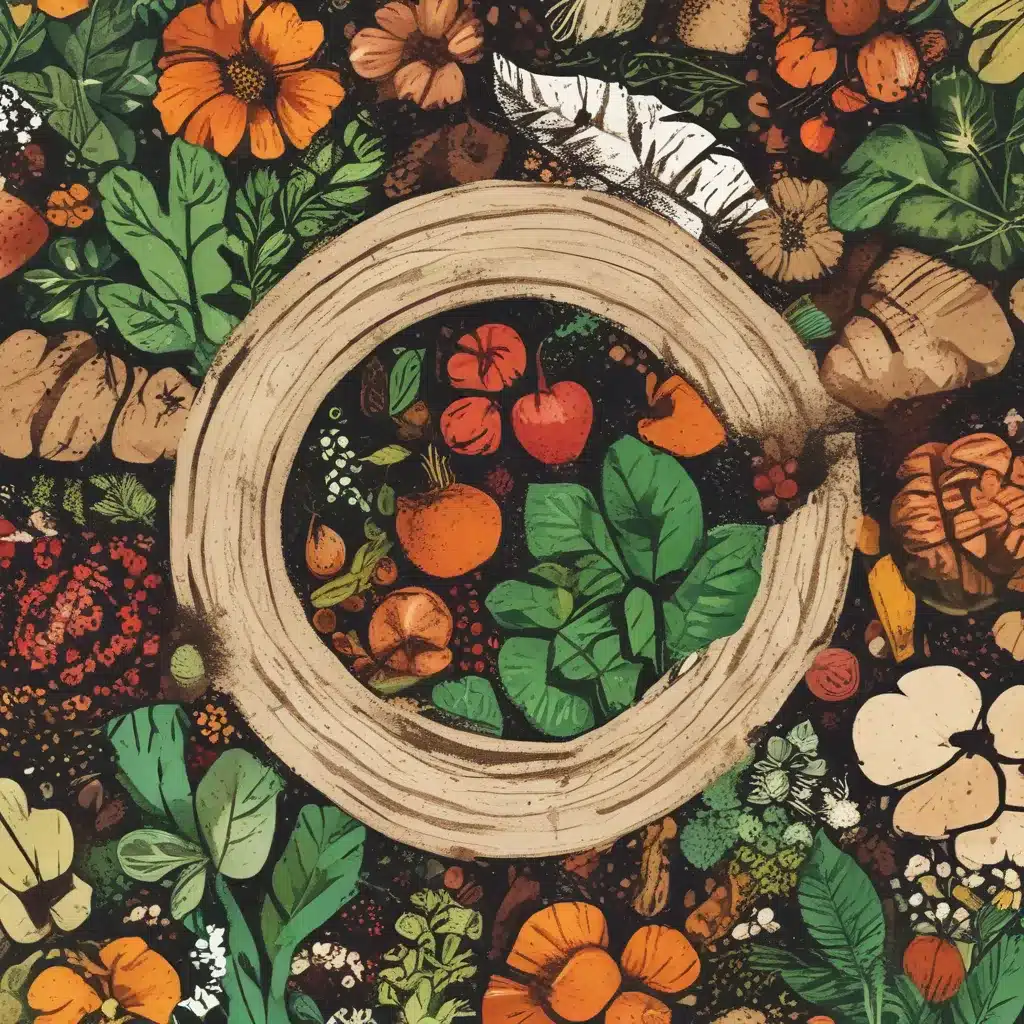
Embracing a Greener Future: Thornapple CSA’s Sustainability Journey
As a member of the Thornapple Community-Supported Agriculture (CSA) service, I’ve witnessed firsthand the remarkable strides they’ve taken towards creating a more sustainable and eco-friendly future. In this article, I’ll dive deep into the innovative circular economy strategies Thornapple CSA has implemented to manage its waste and minimize its environmental impact.
The Composting Conundrum: Tackling Food Waste
One of the most pressing challenges facing any CSA operation is the management of food waste. After all, when you’re dealing with a bounty of fresh, locally-grown produce, there’s bound to be some leftovers that don’t make it to the dinner table. However, Thornapple CSA has ingeniously turned this potential problem into an opportunity for sustainability.
According to a recent report, Thornapple CSA has implemented a comprehensive composting program that diverts an impressive 85% of its food waste from landfills. This is achieved through a carefully designed system that collects organic matter from member households and transforms it into nutrient-rich soil amendments for the farm’s fields.
But the journey doesn’t end there. Thornapple CSA has also partnered with local businesses and organizations to collect their food waste, further expanding the reach of this circular economy initiative. The Grand Rapids municipal government’s recent budget plan highlights the city’s commitment to supporting these types of collaborative waste management programs, which aligns perfectly with Thornapple CSA’s vision.
Closing the Loop: Sustainable Packaging and Reuse
In addition to tackling food waste, Thornapple CSA has also made significant strides in addressing the issue of packaging waste. Gone are the days of single-use plastic bags and containers; instead, the CSA has embraced a reusable and recyclable packaging system that truly embodies the principles of a circular economy.
Each week, members receive their fresh produce in sturdy, reusable totes and bins. These containers are then returned to the farm, cleaned, and used again the following week, effectively eliminating the need for disposable packaging. As outlined in the New Brunswick nursing home design standards, this type of reusable packaging system not only reduces waste but also promotes a sense of community and environmental stewardship among members.
But the sustainability efforts don’t stop there. Thornapple CSA also partners with local artisans and craftspeople to create unique, reusable alternatives to traditional packaging, such as handcrafted wooden crates and ceramic jars. These custom-made containers not only add a touch of rustic charm to the CSA experience but also encourage members to think beyond the single-use mindset.
Cultivating a Culture of Sustainability
Thornapple CSA’s commitment to sustainability extends far beyond just waste management. The organization has worked tirelessly to cultivate a culture of environmental stewardship among its members and the broader community.
One such initiative is the CSA’s educational outreach program, which hosts regular workshops and seminars on topics ranging from organic farming practices to the importance of supporting local food systems. These events not only inform and inspire members but also serve as a platform for them to share their own sustainability stories and best practices.
Moreover, Thornapple CSA has actively encouraged its members to get involved in the farm’s day-to-day operations, from harvesting crops to tending to the compost piles. This hands-on approach not only helps to foster a deeper connection to the land but also instills a sense of ownership and responsibility for the sustainability of the CSA.
Cultivating Community Connections
But Thornapple CSA’s sustainability efforts go beyond just environmental considerations. The organization has also recognized the importance of building strong community connections as a key component of its overall sustainability strategy.
By partnering with local businesses, non-profit organizations, and community groups, Thornapple CSA has been able to expand the reach of its sustainability initiatives and create a ripple effect of positive change throughout the region. For example, the CSA’s collaboration with the local food bank has helped to ensure that surplus produce is distributed to those in need, rather than ending up in the compost pile.
These community connections have also enabled Thornapple CSA to explore innovative solutions for waste management and sustainability. For instance, the CSA’s partnership with a local brewery has resulted in the creation of a unique “spent grain” composting program, where the leftover grains from the brewing process are used to enrich the farm’s soil.
Embracing the Future: Thornapple CSA’s Sustainable Vision
As I reflect on Thornapple CSA’s remarkable sustainability journey, I can’t help but feel inspired and optimistic about the future. The organization’s unwavering commitment to creating a more sustainable and circular economy is not only admirable but also serves as a shining example for other CSAs and community-based organizations to follow.
By continuing to innovate, collaborate, and engage its members, Thornapple CSA is poised to lead the way in redefining what it means to be a truly sustainable and environmentally-conscious community. And as a member, I’m proud to be a part of this movement towards a greener, more resilient future.
So, if you’re intrigued by the idea of a community-supported agriculture service that truly puts sustainability at the forefront, I encourage you to visit the Thornapple CSA website and learn more about how you can get involved. Together, we can all play a role in closing the loop and creating a better tomorrow.



